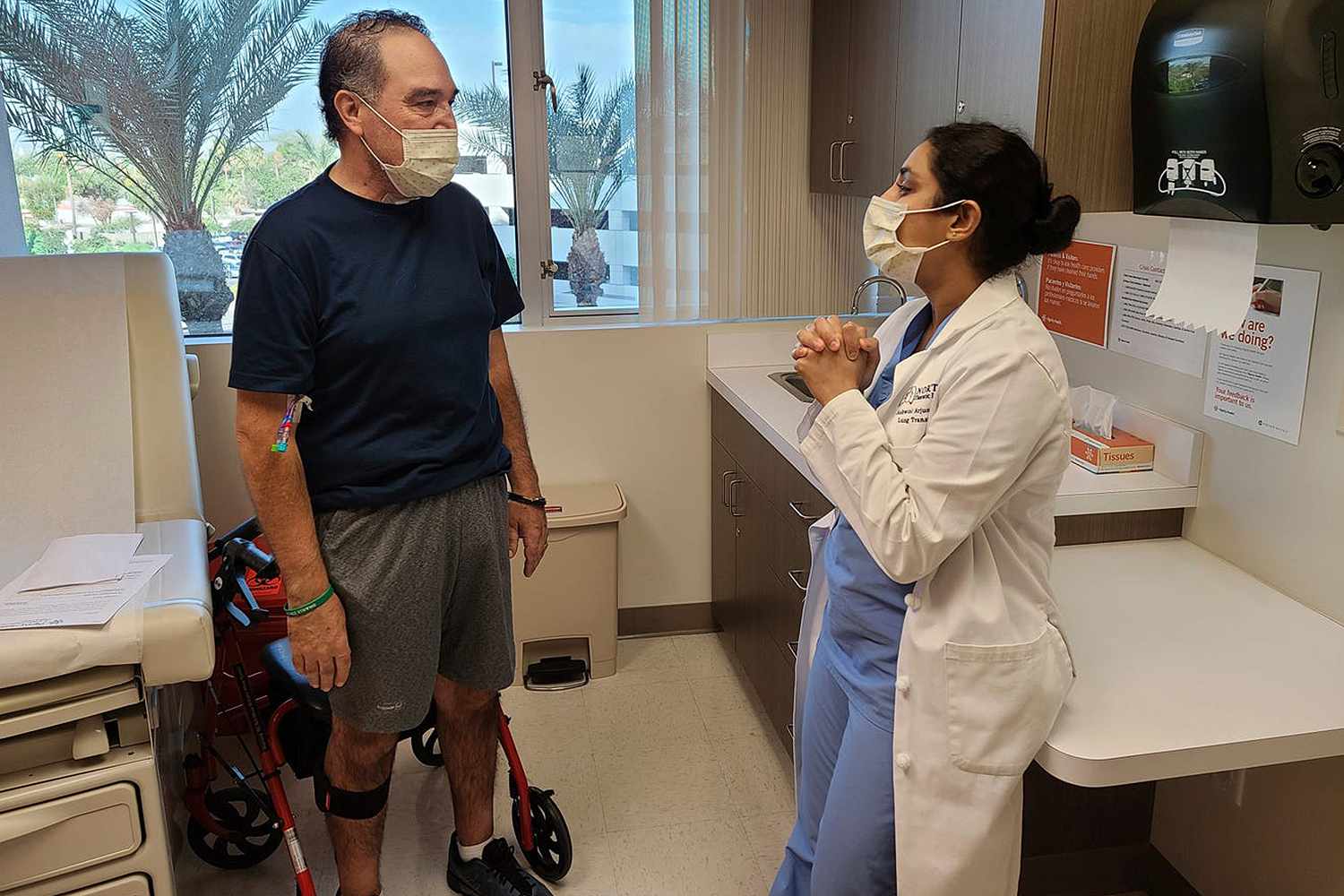
When COVID-19 first hit the U.S. at the beginning of 2020, Arthur Sanchez thought that it was “nothing big” and no more severe than the flu. The 52-year-old, from Las Cruces, New Mexico, assumed that as a healthy adult with only minor preexisting conditions — he had moderate high blood pressure and was slightly overweight — he would be fine if he did contract the virus.
But then Sanchez watched his mother and sister contract COVID-19, along with his 50-year-old brother-in-law, who died from the virus. And on April 12, one day after his brother-in-law’s death, he woke up with shortness of breath and a fever.
“I would probably compare it to being underwater too long and not being able to come up for air,” Sanchez said in a press conference, the Associated Press reported.
Sanchez went to the hospital that day, and seven months later, is just at the start of a long recovery from four months on a ventilator and a double lung transplant, the first performed on a COVID-19 patient at Dignity Health St. Joseph's Medical Center in Phoenix.
Sanchez, a utility worker, spent five months in New Mexico hospitals, and 116 days hooked up to a ventilator.
It was “a scary situation to be in,” he said, explaining that the inability to fully breathe while sickened with COVID-19 is “all your mind starts to focus on.”
After several months, Sanchez began to improve and was able to come off the ventilator. But X-rays and CT scans showed that his lungs were now too damaged to fully function, and doctors decided that he needed a double lung transplant.
"A double lung transplant was necessary because the lungs had scarred to the extent that they were not going to recover," said Dr. Rajat Walia, a pulmonologist and medical director of the lung transplant program St. Joseph’s. "… There is a point at which we know that these lungs are not going to recover. Such was Arthur's case."
Walia and his fellow doctors performed the transplant on Aug. 16, and Sanchez has spent the months since in Phoenix, recovering from the procedure. He now has to take immune-suppressing medications to prevent his body from rejecting the transplanted lungs, and will have to worry about long-term effects from COVID-19.
“My immune system is so suppressed now to avoid … rejection. I am more susceptible to any type of virus, sickness, illness, whatever,” Sanchez said. “So, I have to be careful with what I do, with what I eat.”
Sanchez, who broke down in tears several times during the press conference, said he considers himself a “walking miracle,” and urged others not to doubt the severity of COVID-19 like he had.
“I’ve lost 50-plus lbs. from this illness. I don’t recommend it as a diet plan for anybody,” he said. “My attitude has changed. You need to take it seriously.”
Source: Read Full Article